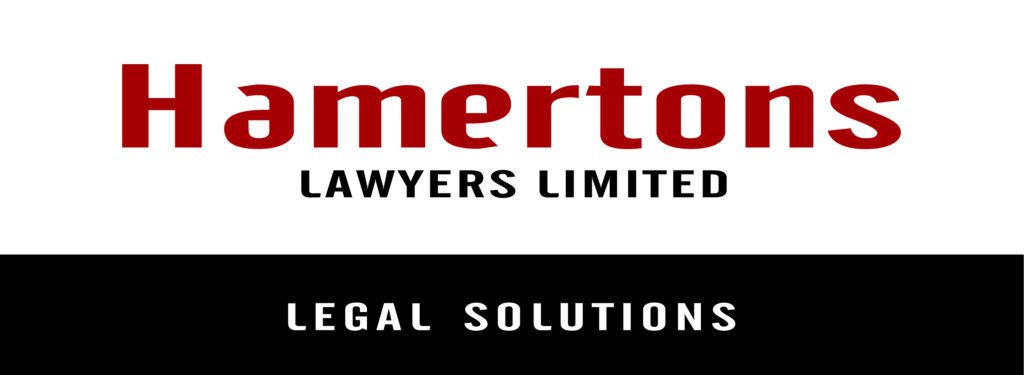News

TRUSTS – WHAT ARE THEY, HOW DO THEY WORK, WHEN MIGHT YOU NEED ONE?
THIS BLOG IS BROUGHT TO YOU BY:

This article discusses family trusts. There are other kinds, most commonly whanau trusts or ahu whenua trusts formed through the Maori Land Court and testamentary trusts which arise out of wills.
What is a trust?
A trust is a vehicle for holding assets on behalf of a person or persons who are together called the beneficiaries of the trust. A trust has a settlor, who generally forms the trust and settles assets into it, trustees who administer those assets, and beneficiaries who are the people entitled to benefit from the capital and/or income of the trust.
A trust can exist for a maximum of 125 years, though it can usually be wound up earlier.
There are two types of beneficiary; discretionary beneficiaries who have no fixed entitlement to anything from the trust but to whom the trustees may distribute capital or income during the lifetime of the trust and final beneficiaries who will receive the assets of the trust when it is wound up.
How do trusts work?
The founding document of a trust is the trust deed which sets out the “rules” for the trustees to follow when administering the trust. Trusts and the actions of trustees are also governed by the Trusts Act 2019.
Once assets have been transferred into or purchased by a trust, they are no longer owned by the settlor. Even if the settlor is a trustee they cannot treat the assets as their own and must take into account the best interests of the beneficiaries when managing the assets. This can be a difficult mindset shift for people who settle assets on the trust.
When assets are personally owned, the owners are free to do whatever they like with them and may take on whatever level of risk they personally feel is acceptable. When acting as a trustee, however, the onus is on the trustees to consider the best interests of the beneficiaries and the level of acceptable risk is generally lower. If assets are invested in a high-risk investment in the hopes of a high return, but the capital is lost or reduced, beneficiaries may have a claim against the trustees for inappropriate management of the assets.
Trustees must keep full records, including all trust documents and resolutions relating to all actions taken by the trustees and have financial statements prepared annually. Beneficiaries are entitled to know that they are beneficiaries of the trust and to receive copies of the trust documents such as the trust deed and any documents recording changes of trustees or variations to the trust deed. They may also be entitled to see financial statements, but this is not an automatic right.
When might you need a trust?
The two most common reasons now to have a trust are:
- To hold capital assets, particularly the family home, to protect them from business risk should a sole trader, partnership or company operating a business become insolvent or be sued. The assets need to have been in the trust before there was any possibility of insolvency or a prosecution/civil lawsuit for the trust to be effective in protecting those assets from being used to satisfy debts or fines.
- As an estate planning tool, particularly in circumstances where there are second or subsequent marriages and couples have separate children, or to facilitate succession to the assets over time.
Separating capital assets from business risk:
Trusts can be a useful tool in industries such as farming where there is a significant landholding, with a business being operated on that land. Trusts are often used to own the land, with the land being leased to an entity which owns all of the farming assets, operates the farming business and generates the income. The income from the farming operation pays the rent specified in the lease to the trust, with the balance of the income paid out in salaries or dividends or retained by the business operator as they consider appropriate.
The land is retained by the trustees of the trust for the benefit of current and future generations of the family. Income is generated from the land which can be available to the trustees to use for the benefit of the discretionary beneficiaries while the land is separated from the business, thereby mitigating the risk that it could be lost in the event of the business becoming insolvent or being prosecuted or sued.
This is not only useful in farming situations. It is prudent for operators of any business which carries significant debt or in which there is a risk of a significant health and safety prosecution, for example, or a private suit to hold their family home in a trust separate from the business.
Estate planning:
When couples enter into a marriage or de facto relationship, and one or both bring significant assets to that relationship and they have separate children, trusts can be a useful tool in ensuring that the assets ultimately find their way to each person’s children after the parents have both died. Best practice is to combine this with a contracting out agreement under the Property (Relationships) Act to ensure that the separation of those assets is robust and cannot be retrospectively challenged.
Trusts can also be useful as a succession tool, particularly if it is intended that one or more of the beneficiaries ultimately takes the asset (usually land) initially settled into the trust. If, over time, the trustees invest the income generated from the asset into the acquisition of other assets (for example a share portfolio or rental properties) those other assets can be available to be distributed when the trust is wound up. This is most commonly seen in farming situations, where one or more children may wish to take over the farm, which is the highest value asset of the trust, but not be able to raise sufficient funds to pay out their siblings for an equal entitlement from the trust. If the trust has other assets available for distribution, the beneficiary taking the high value asset will have to raise less money to equalise the distributions. Because the trust can exist for 125 years, it also allows flexibility for gradual succession.
Want to know more? Tune into the Hamertons Lawyers Limited upcoming webinar ‘Trusts 101’ on 11 September at 12:30pm, register HERE.














